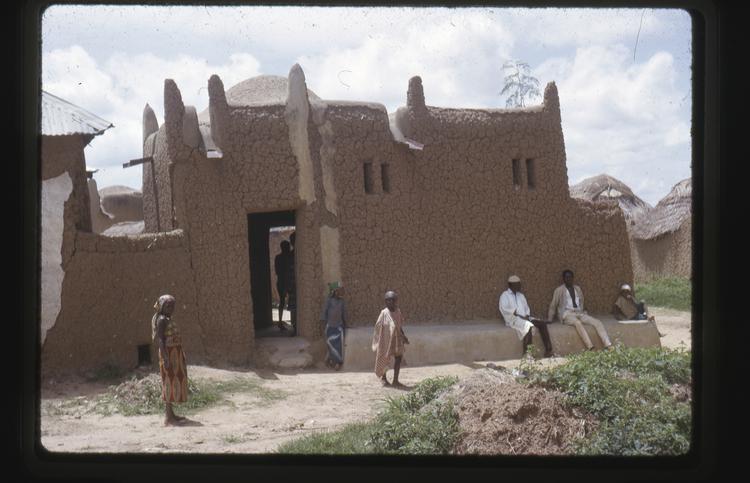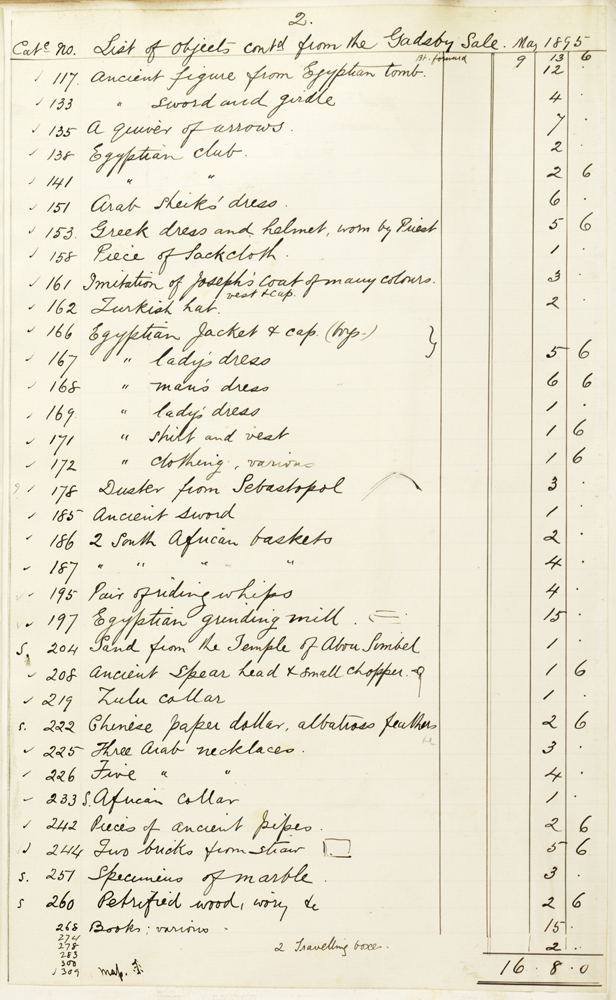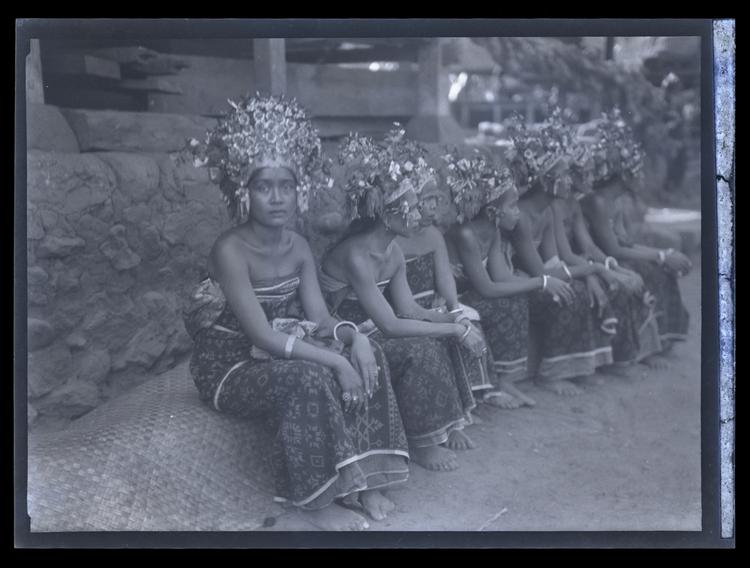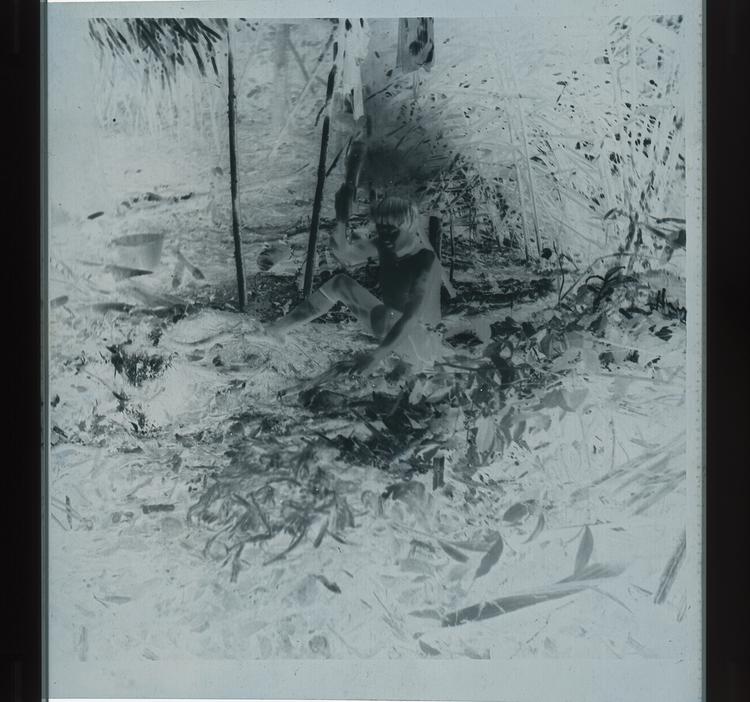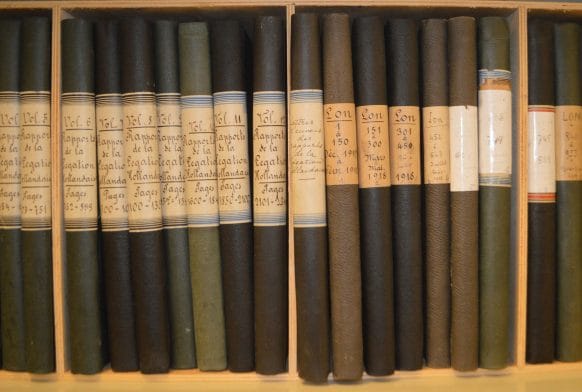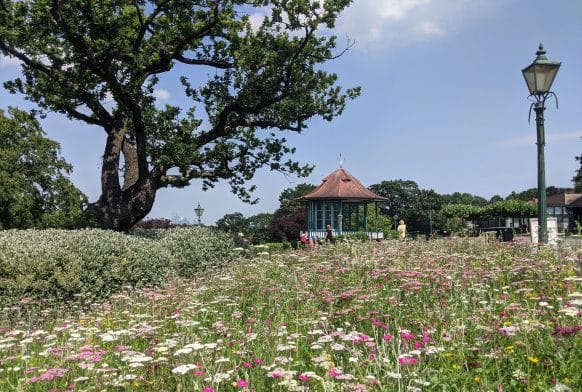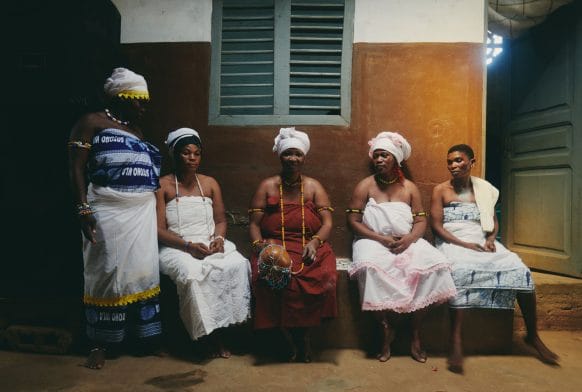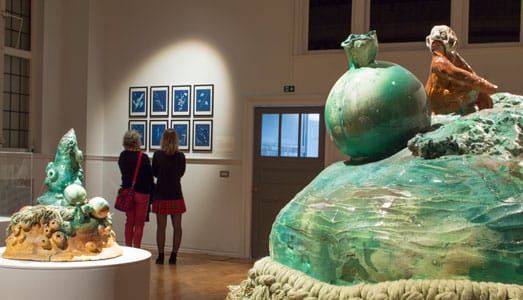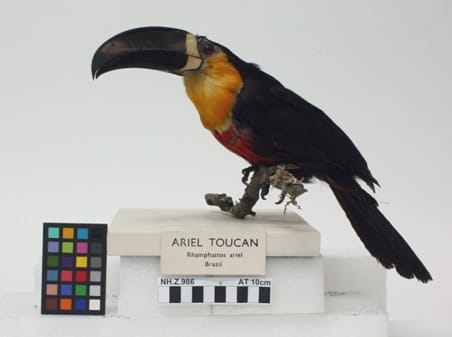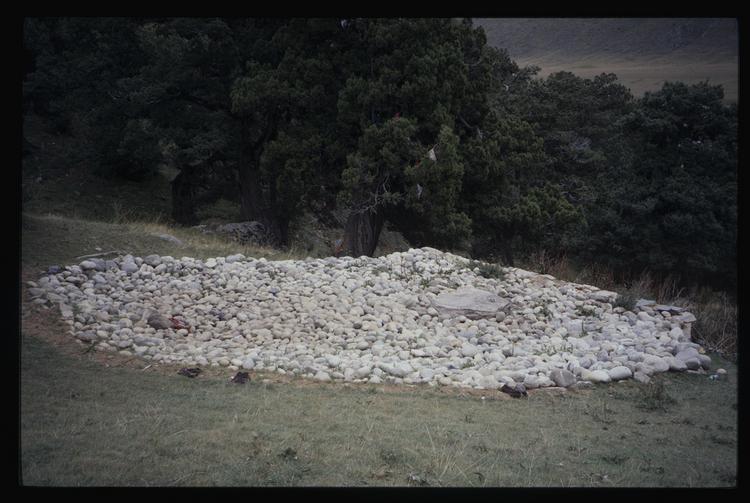
Photograph shows the same location as in the previous slide, ARC/BAL/002/005/011. Sky burial is a funeral practice in which a human corpse is placed on a mountaintop to decompose while exposing to the elements or to be eaten by scavenging animals, especially birds of prey. Photograph shows the large stones where the bones of the deceased are crushed. Bodies are bought to the site naked wrapped in khatas (Tibetan silk scarves) in a sack. They are carried three times clockwise around the site. At the back of the photograph is a standing stone where the body is placed. Relatives of the deceased bring food and drink for the monks and eat together. Each monk removes the khatas, they crush the skull of the deceased then take their flesh off with knives while vultures wait and strip the body clean. The bones are then gathered together and pounded with tsampa (roasted barley) by the monks and all is thrown back on the stones.



